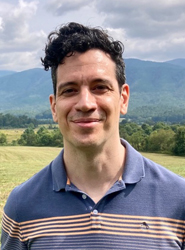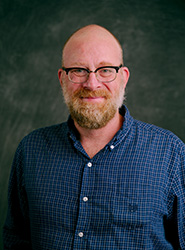From Capitol Hill to the skies, English helped Houston Holdren soar.

English alumna Houston Holdren (’19) is a Senior Executive Assistant for Government Operations (Defense, Space & Security) at Boeing in Arlington, Va. Before that, she served as Director of Operations for the House Republican Conference, U.S. House of Representatives, chaired by Rep. Elise Stefanik (NY-21). She’s come a long way from her hometown of Henderson, Tenn. Houston caught up with her old tech comm professor Russel Hirst to talk about her work and to reflect upon the springboard—majoring in English, rhetoric concentration—that launched her career. This interview has been edited for length and clarity.
Hirst: After graduating with a B.A. in English, you plunged into high-level jobs in our nation’s capital. How did UTK prepare you for such a leap?
Holdren: I majored in English with the rhetoric concentration. That taught me how to build narratives and how to make persuasive arguments. And I converted to your theory of brevitas, Dr. Hirst. That has been incredibly valuable in all my work here in DC.
Hirst: I feel honored. You also had a useful minor, right?
Holdren: Yes, minoring in American Studies was important for me as well. I have always been interested in public policy and foreign affairs. I was a news junkie from a young age.
Hirst: Like everyone in Henderson, right?
Holdren: I suppose my path out of that context has been a bit unusual.
Hirst: So it was home town to UTK to DC. Tell me about that last jump.
Holdren: As I approached graduation, I landed a job in nearby Nashville and was all set to take it when a UT colleague told me about an internship opportunity with Senator Lamar Alexander in DC. I interviewed and got the internship. My policy urge won out over the Nashville job and I went to DC. But living there is expensive. My mom respected what I was doing, but she said at the front end of her supplementary support: “You have two months to find a permanent job.” I said “Yes ma’am” and began searching. Since I was interning for Senator Alexander, I had access to door-knocking at capitol offices, so that’s what I did. Well that mostly translates to scouring GOP job listing bulletins and consistently networking day and night.
Hirst: So you scoured and networked and knocked on doors of Congresspeople, hawking your communication skills?
Holdren: Exactly. And I endured many rejections. But when I approached Representative Elise Stefanik, I found she had an opening for a director of scheduling and operations. She and I hit it off, and I got the job—starting off as Staff Assistant but then being promoted in a month to that Director title. Real DC pay! It was exciting in every way.
Hirst: That’s huge stuff. How long did you work for Stefanik, and what did you do?
Holdren: Thanks. I started in March 2020, just as the Covid pandemic was hitting. I worked for her until May 2022, so that was a bit over two years. As for what I did: how much time do we have here? It was an avalanche of work, and I loved it. I developed and managed strategic planning for the Congresswoman, which included her official, district, and political schedules. I maintained all her official records, I was sole liaison between her and her staff, I coordinated her tele-town hall calls (this was Covid era, as I said). I helped develop her messaging in extensive ways—for example, for communication to the counties in her district, we centered brief, clear messages on the top three concerns for each county. Audience adaptation and brevitas, right Dr. Hirst? Like I said, rhetoric studies at UTK proved vital to what I was doing.
Hirst: Impressive! And did your duties become even greater as she saw how much you could do?
Holdren: Very much so. And then she became House Republican Conference Chair, the third-highest ranking position in the House Minority. So my duties elevated for that reason as well. I was co-developing centralized messaging for the GOP, I was organizing large-scale events and national media interfaces and GOP policy retreats and classified Member briefings. And I was learning so much, and networking like crazy.
Hirst: That sounds thrilling. So why did you leave your work for Congress and take a position at Boeing? What do you do at Boeing?
Holdren: I am very interested in the intersection of government and industry, specifically defense and national security related topics, and by this point I’d had exposure to a lot of these issues by way of GOP messaging as it pertained to the war in Ukraine among other hot issues. I believed I could be of some use in that context. It was a logical step for me to become assistant to a senior exec at Boeing in government operations, specifically Defense, Space & Security. And I’m still liaising and networking and working with the Pentagon, federal agencies, industry leaders, and all the rest.
Hirst: I’m sure Boeing values all your experience and connections at Congress.
Holdren: Indeed. And they recognize me as a messaging and organizational expert. For example I have shown people at Boeing how to improve team reports using Smart Brevity Communication, and I developed a manual to help department heads when they onboard new exec assistants. You know, people like me!
Hirst: I’m not sure there are many others like you out there.
Holdren: Ha, yes there are! A note to graduating students: Boeing and other organizations talk in terms of the “talent pipeline.” We are always looking for talent. I’m active in that effort, helping plan outreach, briefings, highlighting the Boeing mission and shaping the pipeline. For example, I’m now a strategy and security fellow for the Alexander Hamilton Society & Public Interest Fellowship, which has collegiate and professional chapters. That is a talent-rich tributary to the pipeline. We of course are looking for talent in any kind of student or professional, but I will mention that I’m co-chair of the Independent Women’s Network, DC Chapter. This is a civically active group of women engaged in growing the number of conservative, independent-minded women working in government and industry. I’ve hosted several events with female members of Congress as the guests, and they’ve spoken on topics like current policy issues, the female experience as a member of Congress, and confidence. All this makes use of comms skills I sharpened at UTK.
Hirst: All very inspiring! It sounds like many groups appreciate your talents, Boeing in particular.
Holdren: Yes! Plus they are sponsoring me in further formal education. I’m working on an MBA from George Mason University. I’m on course to graduate next year.
Hirst: Then what? Will you stay at Boeing or launch into other realms?
Holdren: I don’t know. I love it here. But my boss says he’ll understand completely when I want to move on up, and he’ll support me.
Hirst: I like the sound of that. Ok, so as we finish here, it’s time to leave final words of advice to those entering the talent pipeline.
Holdren: First, English majors, word experts, let people know you’re the world’s best communicators, organizers, and liaisons. You excel in messaging, persuasion, and human relations. There is so much need for you out here! Second, embrace doing new things in new places. Third, when you do face rejection, let it motivate rather than discourage you.

